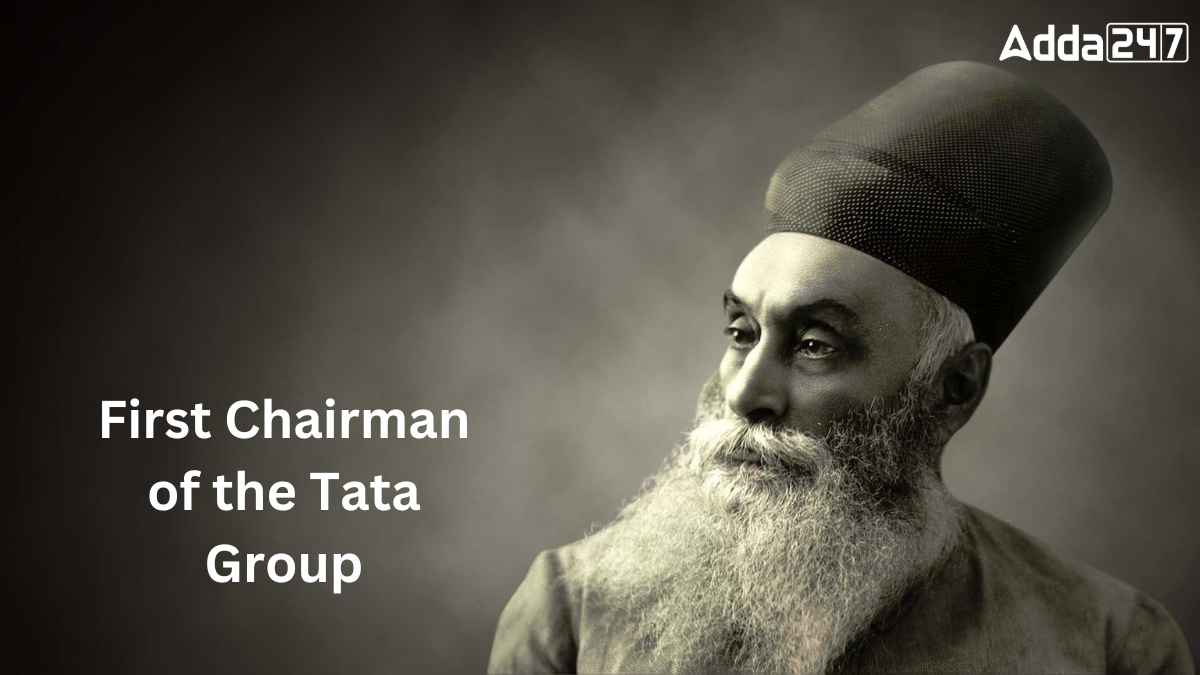The Tata Group is one of India’s largest and most respected business organizations. It was founded in 1868 by Jamsetji Tata, who aimed to bring growth and development to India through industrialization. The Tata Group, one of India’s biggest and most well-known companies, was started by a great man named Jamsetji Tata. He was the first chairman of the Tata Group and is often called the “Father of Indian Industry” because of his vision and hard work.
An Overview of Tata Group
- Company type: Corporate group
- Founded: 1868
- Founder: Jamsetji Tata
- Headquarter: Mumbai, India
- Area worldwide: Worldwide
The Tata Group is a large Indian company based in Mumbai. Founded in 1868, it is the biggest business group in India, with products and services reaching more than 150 countries and activities in 100 countries.
As of August 20, 2024, there are 29 Tata companies listed on the stock market, together worth ₹33.7 trillion (US$403 billion). Well-known companies under the Tata Group include Tata Consultancy Services, Tata Motors, Tata Steel, Tata Power, Titan, Air India, Indian Hotels, Tata Consumer Products, Voltas, Trent, Cromā, and BigBasket.
Chairmen of Tata Group – History
Tata Group has had seven chairmen since its inception:
- Jamsetji Tata (1868–1904)
- Sir Dorabji Tata (1904–1932)
- Sir Nowroji Saklatwala (1932–1938)
- R. D. Tata (1938–1991)
- Ratan Tata (1991–2012)
- Cyrus Mistry (2012–2016)
- Ratan Tata (2016–2017)
- Natarajan Chandrasekaran (2017 – Present)
Who was the First Chairman of Tata Group?
Jamshedji Nusserwanji Tata was an Indian industrialist and the founder of the Tata Group, India’s largest business conglomerate. He is considered the “Father of Indian Industry” for his efforts to modernize India’s economy and industry. His vision led to the creation of major institutions and industries that still play a vital role in India today.
Early Life of Jamsetji Tata
Jamshedji Tata was born on 3 March 1839 in Navsari, Gujarat, to a Parsi Zoroastrian family. His family was traditionally involved in religious duties, but his father, Nusserwanji Tata, decided to pursue business. Jamshedji grew up in a modest background and displayed exceptional skills in mathematics from a young age. For his education, he moved to Bombay (now Mumbai) and studied at Elphinstone College, where he graduated as a “Green Scholar.”
Beginning in Business
After completing his education, Jamshedji joined his father’s export-trading firm, where he gained valuable business experience. He traveled to different countries, including China, where he saw the potential of the cotton industry. In 1868, he decided to start his own trading company with ₹21,000 as initial capital. He bought a bankrupt oil mill in 1869 and converted it into a cotton mill named Alexandra Mill. After selling the mill for a profit, he founded the Central India Spinning, Weaving, and Manufacturing Company in 1874 in Nagpur.
Four Major Goals of Jamsetji Tata
Jamshedji Tata had four major goals that he wanted to achieve for India:
- An Iron and Steel Company
- A World-Class Learning Institution
- A Unique Hotel
- A Hydroelectric Plant
Among these, only the hotel became a reality during his lifetime. The Taj Mahal Hotel, which opened in Mumbai in 1903, was the first hotel in India to have electricity and other modern facilities. The other three goals were later achieved by his successors.
Establishment of Tata Steel
Although Jamshedji did not live to see it, his vision of an iron and steel company came true when Tata Steel was established in 1907, three years after his death. Tata Steel became the first and largest steel company in Asia and continues to be one of the most important industries in India.
Philanthropy and Contributions of Jamsetji Tata
Jamshedji Tata was not just a businessman; he was also a great philanthropist. He donated large amounts of money to support education and healthcare in India. His contributions laid the foundation for modern Indian industry and social development. In 1892, he established an endowment for higher education, which helped many Indian students study abroad. In 2021, Jamshedji was recognized as the greatest philanthropist of the century, with donations valued at $150 billion (adjusted for inflation).
Family and Personal Life of Jamsetji Tata
Jamshedji married Hirabai Daboo, and they had two sons, Dorabji Tata and Ratanji Tata, who later took over the Tata Group. His family played a crucial role in continuing his legacy and expanding the Tata Group into a global business.
Death and Legacy of Founder of Tata Group
Jamshedji Tata died on 19 May 1904 while on a business trip in Germany. He was buried in the Parsi burial ground at Brookwood Cemetery in England. His vision and efforts set the stage for India’s industrial growth, and the city of Jamshedpur was named in his honor. Today, the Tata Group is one of the biggest and most respected business conglomerates in the world, thanks to his pioneering efforts.




 Which Country is known as the Land of Mo...
Which Country is known as the Land of Mo...
 Which Languages is known as the Mother o...
Which Languages is known as the Mother o...
 Which Country is known as the Highest Pr...
Which Country is known as the Highest Pr...








